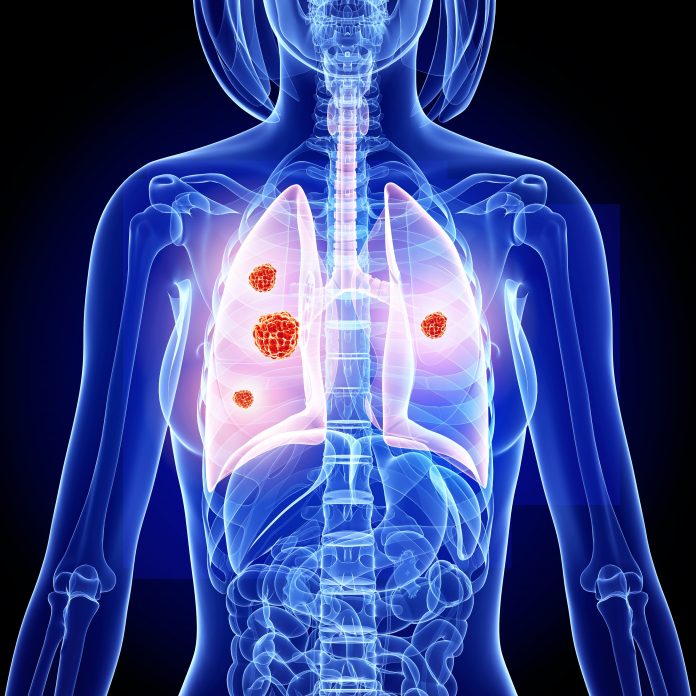
Eating a more substantial meal led to significantly higher blood concentrations of drug in patients taking an often-prescribed treatment for lung cancer. Alectinib (Genentech’s Alecensa) is a small molecule kinase inhibitor used to treat ALK positive, metastatic, non-small cell lung cancer. Taking a dose of alectinib with a small, low-fat snack instead of a more generous meal left more than a third of patients below the drug concentration goal.
This research was published in the June 2023 issue of JNCCN—Journal of the National Comprehensive Cancer Network. The lead author is Daan A.C. Lanser, MSc, Department of Medical Oncology, Erasmus Cancer Institute.
The researchers, based out of Rotterdam, The Netherlands, evaluated 20 randomized patients who took one of two daily alectinib doses with either low-fat yogurt alone, a full continental breakfast, or a lunch of their choosing. Taking alectinib with low-fat yogurt resulted in 14% less exposure than in the continental breakfast group, and 20% less than in those who took the medication with lunch.
The team also looked at the number and severity of side effects—and found no significant differences between the study group subsets.
Lanser told Inside Precision Medicine, “Our senior author, Dr. Veerman, discovered, with his review about food-drug interactions regarding small molecule kinase inhibitors, that alectinib was experiencing a food effect.”
He added that, “With our study, we showed that even with a relatively small variation in breakfasts, the concentration of the drug could change. This is important information for patients, since we know that higher alectinib concentrations in blood could result in more efficacy of the drug, a longer treatment duration and therefore, hopefully, a better survival.”
Sandip Patel, MD, professor in the Department of Medicine at University of California San Diego School of Medicine and Medical Oncologist at Moores Cancer Center at UC San Diego Health, said, “Alectinib is a standard-of-care oral small molecule inhibitor for patients with ALK-rearranged metastatic non-small cell lung cancer. Maintaining therapeutic doses long-term is key to this drug’s activity.”
Patel did not participate in this research, but he is a Member of the NCCN Clinical Practice Guidelines in Oncology (NCCN Guidelines) Panel for Non-Small Cell Lung Cancer.
“Sometimes, we hear that patients are advised to take their twice daily alectinib strictly 12 hours apart, with the result that some patients will take it with just a small snack in the morning or evening. We believe that taking it with a substantial meal containing enough fat is far more important for the absorption and efficacy of the treatment than to wait 12 hours between doses,” Lanser said.
He added that, “The right dose for anti-cancer drugs is important for efficacy and toxicity, therefore, it is important to do research into this area. If knowledge about the interactions are present, physicians could act to it to improve therapy of their patients.”
Complimentary access to “Influence of Food with Different Fat Concentrations on Alectinib Exposure: A Randomized Crossover Pharmacokinetic Trial” is available at JNCCN.org until September 10, 2023.













